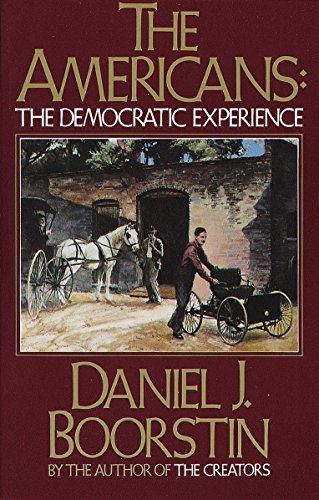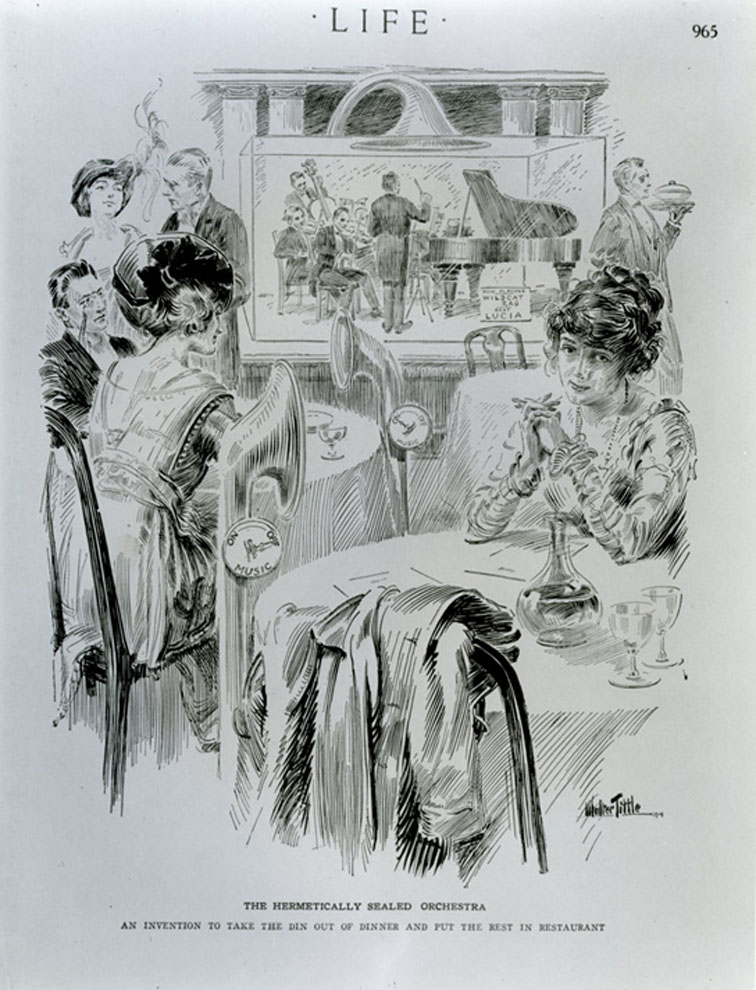|
The Image by Daniel J. Boorstin ©1962 50th anniversary edition published by Vintage Books 2012
"Music, in a word, ceases to be primarily something which comes in individual compositions, each with a form all its own. Instead it becomes an endless homogeneous stream. It is usually subordinate to something else." p.175 "With the growing use of Muzak and other piped-in systems of musical programming, with juke-boxes and the universal installation of hi-fi systems in bars, restaurants, railroad stations, railroad trains, airports, airplanes, and shops, it becomes ever harder to avoid the flood of musical pseudo-events, the sounds which do not say what they seem to, but are only vehicles for personal moods and commercial images... Perhaps some mid-twentieth-century Edison will develop for installation in public places a device by which a person who inserts a dime can purchase (or have piped in) a few minutes of silence. Then we could be comforted that, in this branch of technology at least, no further improvement would be possible." pp.178-179
"During recent decades we have come to think that our new technology can save us from the inexorable laws of familiarity. By magical modern machinery we hope to clear the world of its commonplaceness...Now all of us frustrate ourselves by the expectation that we can make the exotic an everyday experience (without its ceasing to be exotic); and can somehow make commonplaceness itself disappear." p. 77
The Americans: The Democratic Experience by Daniel J. Boorstin ©1973
Penguin Random House “There was less difference than ever before between what man could do indoors and what he had to go outdoors and brave the weather for. There were all sorts of new indoor ways of getting water to drink, of disposing of humans waste, of enjoying sports. Americans began to carry their indoors with them when they listened to stereo music and radio news in their air-conditioned auto capsule or on the beach. The common-sense distinction between the world Nature’s God had made and man’s little artificial world was blurred as never before, leaving Americans more disoriented than they commonly realized.” p.358
In 1914 a Life magazine cartoon perhaps anticipated Boorstin's concern about music overwhelming public spaces, in this case with live music being the source and not recorded music. Whatever the source, however, this cartoon offered a potential solution to manage 'piped in' music with an on/off switch that would keep it contained and give at least "a few minutes of silence."
|


